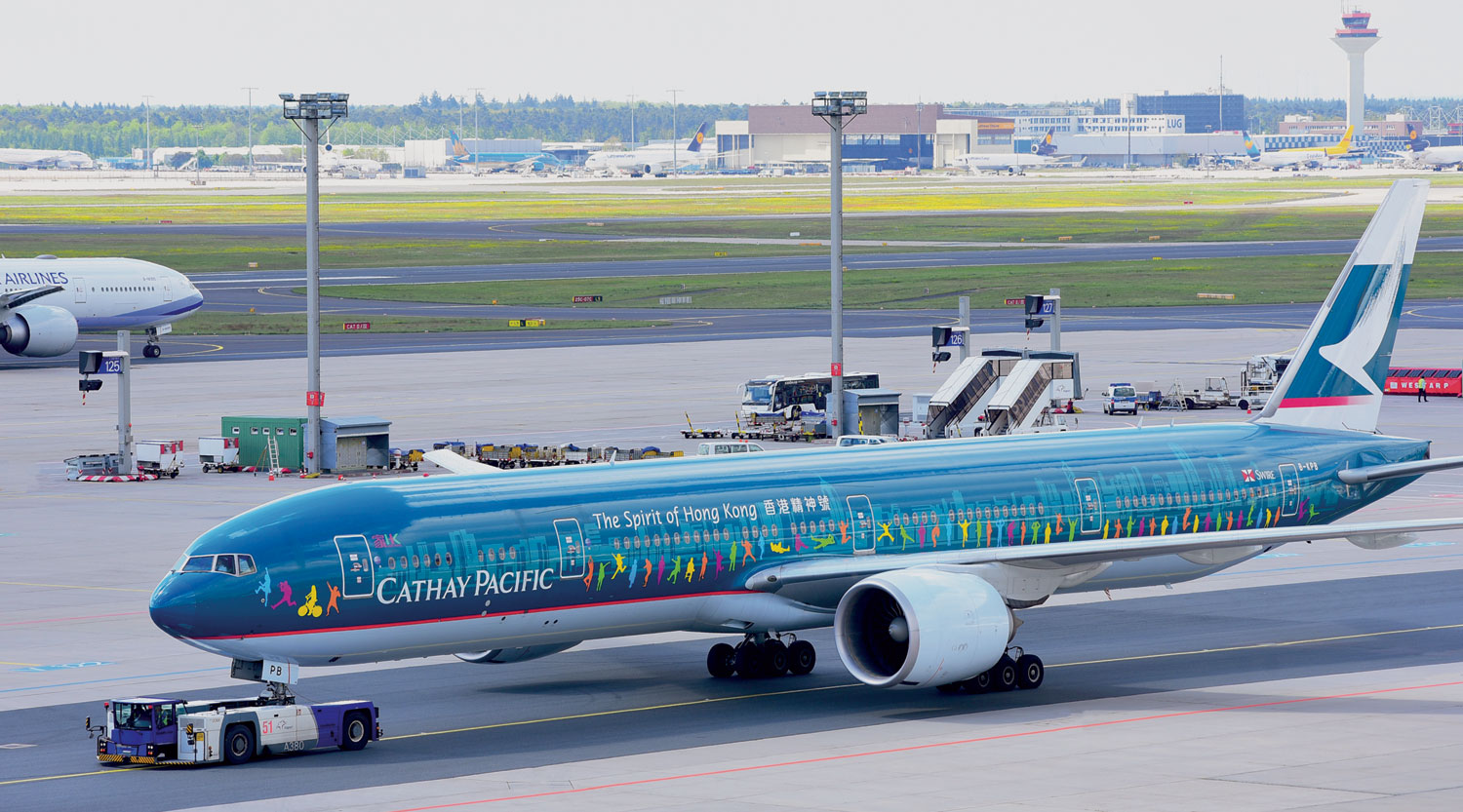

Loss-making Cathay Pacific Airways Ltd hired McKinsey & Co consultants earlier this year to advise on a transformation plan, drawing on turnarounds at regional rivals such as Qantas Airways Ltd and Japan Airlines Co Ltd.
Battered by competition from Chinese and Middle East airlines and hobbled by missteps in fuel hedging, Cathay in January completed a strategic review, and later announced its biggest job cuts in almost two decades.
Following McKinsey’s subsequent input — which has not been previously reported — Greg Hughes, Cathay’s Chief Operations and Service Delivery Officer, said more than 740 initiatives had so far been identified to cut costs, boost productivity and improve customer service — including easier access to higher ‘frequent flyer’ status, more economy-class seats on Boeing 777 airliners, and on-demand dining for business-class fliers.
“We were very keen on learning from them the best way to go about a transformation,” Hughes said. “They have done thousands of them, and we haven’t.”
Hughes said McKinsey’s involvement ended after its consultants helped structure the three-year transformation programme, which is being carried out by Cathay Pacific staff and aims for HK$4 billion ($512 million) of savings from lowering costs and boosting productivity. “We have always wanted our transformation programme to be something that our people own and can deliver upon,” he said.
But, as Cathay chases a return to profitability, it looks set to continue a practice that some current and former employees say may be the biggest obstacle to a real change of culture: the airline’s unusual executive rotation system.
Under this system, so-called “house staff” at unlisted British conglomerate John Swire & Sons Ltd — which owns a majority stake in Hong Kong-listed Swire Pacific, which, in turn, owns 45 per cent of Cathay — rotate positions at group companies every few years.
This could, in theory, see a Coca-Cola refrigeration manager at a Swire-owned plant in China take charge of Cathay’s operations in France.
Supporters of the scheme say it brings a fresh eye and diverse experience to the job, and helps succession planning.
“If they go through all these different areas they learn to look at things from different perspectives,” said Achim Czerny, associate professor of aviation management at The Hong Kong Polytechnic University.
Critics, though, say it’s a costly, two-tiered relic that leads to short-term and conservative thinking and can demotivate talented middle-managers, who feel excluded from the scheme.
Some blame it for Cathay being slow to spot the strategic threat from rival airlines.
“It’s a bit of a colonial culture,” said Terence Fan, an assistant professor specialising in transport at Singapore Management University. “There’s certainly a lot of complacency.”
Founded as an import-export business in Liverpool in 1816, John Swire & Sons opened its first China office 70 years later.
Still family-controlled, it also owns majority stakes in maintenance group Hong Kong Aircraft Engineering Co Ltd (HAECO) and Swire Properties Ltd.
As a management service fee, the companies pay John Swire & Sons 2.5 per cent of their profit before tax and non-controlling interests.
The arrangement doesn’t give Cathay much incentive to hire top executives from outside as it pays Swire regardless.
Air China Ltd and Qatar Airways are major Cathay shareholders, though Swire gives them little say in the airline’s day-to-day operations.
Former Cathay CEO John Slosar is chairman of Swire Pacific, Cathay, HAECO and Swire Properties.
Like many senior managers — including Cathay’s current CEO Rupert Hogg — Slosar started out on Swire’s “house staff” programme — once an all-male and predominantly ‘Oxbridge’ preserve, with members dubbed by outsiders as ‘Swire princes’.
There is a separate stream of management trainees, more usually Hong Kong locals with Chinese language skills, who stay at a Swire company throughout their careers but move around within that company. Hogg’s predecessor, Ivan Chu, began as a management trainee at Cathay. — Reuters
Jamie Freed
Oman Observer is now on the WhatsApp channel. Click here



